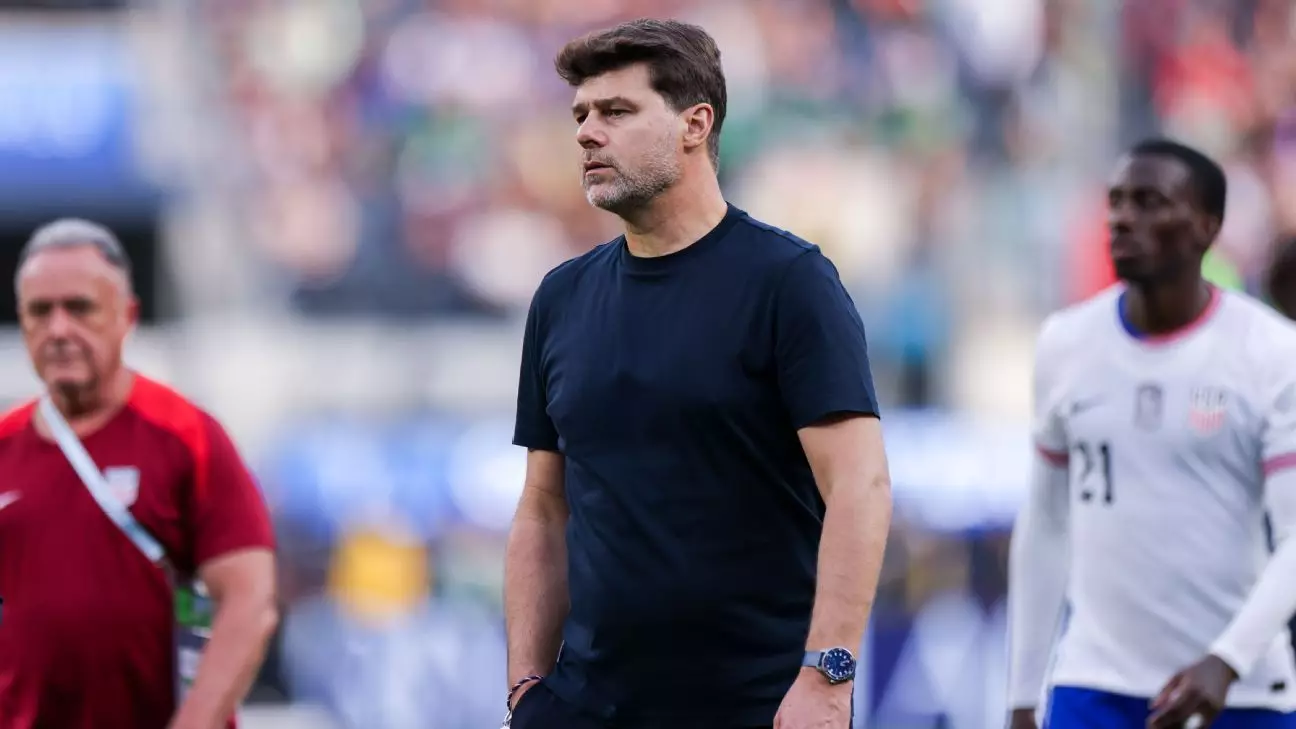The ongoing discourse surrounding the appointment of Mauricio Pochettino as the head coach of the United States Men’s National Team (USMNT) brings to light the crucial relationship between coaching, cultural resonance, and national pride. Bruce Arena, a key figure in U.S. soccer history, has voiced his dissent regarding a foreign coach at the helm of the national team. His argument hinges on the notion that understanding the fabric of American soccer culture is essential for national success. With international football rooted deeply in cultural nuances, it raises questions about the effectiveness of external leadership versus homegrown talent in shaping the identity and performance of a national team.
Indeed, there is merit to Arena’s concerns. Traditionally, many national teams have opted for coaches who share a native understanding of their players’ backgrounds, psyche, and societal context. Arena’s perspective reminds us that the coach’s role extends beyond tactical decisions; it encompasses culture, passion, and national spirit. This sentiment is particularly pressing in a nation, like the United States, that boasts a diverse soccer scene, yet is still in the throes of establishing its soccer identity on the global stage.
The Historical Context of Foreign Coaches
While exemptions to the ‘domestic coach’ rule do exist—with notable examples like Jurgen Klinsmann and Bora Milutinovic at the helm—the long-term success has been sporadic. Klinsmann’s period saw a euphoric rise in U.S. soccer interest but ultimately led to questions of tactical viability. Arena appears to highlight a trend wherein foreign coaches, despite their distinguished credentials, struggle to deeply connect with the American player and fanbase. His discomfort aligns with a broader skepticism regarding whether a coach who has not navigated the American soccer landscape can grasp the quintessential qualities that make this team unique.
Pochettino’s recent remarks about the team’s mentality add layers to this discussion. He openly queried the character of the national squad after disappointing showings in the Concacaf Nations League Finals against Panama and Canada. Such critiques, while aimed at galvanizing the team’s intensity, resonate uncomfortably in a nation propelled by ambition but aching for a cohesive identity. This contrasts sharply with the domestic athletic ethos, where heads of teams often possess the innate ability to motivate by capitalizing on a sense of shared cultural history, thus fostering unity.
The Tension Between Talent and Understanding
The juxtaposition of talent versus cultural understanding in sports is a perennial debate. In Pochettino’s approach, one sense a tension between his elite managerial style and the realities of the players at his disposal. The Argentine’s history includes shaping technically gifted squads, yet American soccer, with its unique blend of styles and influences, requires more than just technical acumen. It demands a nuanced understanding of collective aspirations and traditional rivalries.
The shock expressed by Arena at the USMNT’s inability to overcome even regional rivals moves the conversation from mere statistics to the core of American sports psychology. Can a foreign coach truly rally a diverse group of players who represent a nation with varied soccer legacies? Arena’s argument suggests that on-field performance encapsulates the essence of national pride, a sentiment that perhaps can only be genuinely understood by those who’ve lived it firsthand.
Looking Ahead: The Road to 2026
As preparations are underway for the 2026 World Cup, the urgency for cohesion and national character cannot be understated. The goal to match or surpass the historical achievement of reaching the quarterfinals in 2002 looms large for both players and management. Arena’s worries about the lack of preparedness not only set a standard for Pochettino’s team but also compel all involved to engage intensely with what it means to represent the U.S. at soccer’s highest echelons.
The upcoming summer Gold Cup also presents an opportunity for the national team to redefine its identity and solidify its ambitions. Pochettino’s assertion that talent alone won’t secure roster spots may serve as a call for deeper introspection within the team. As fans and stakeholders in U.S. soccer, the expectation is not merely about winning matches but about cultivating a narrative of resilience and unity that resonates on all levels—individual, team, and nation.
In this critical juncture, the dialogue initiated by Arena advocates for an essential introspection on the values of national coaching positions, emphasizing the significance of cultural understanding in creating a cohesive and competitive national team capable of taking on the world’s best. As the USMNT embarks on this journey, the question remains: can the synergy of foreign expertise and domestic passion lead to a brighter chapter in American soccer history?


Leave a Reply